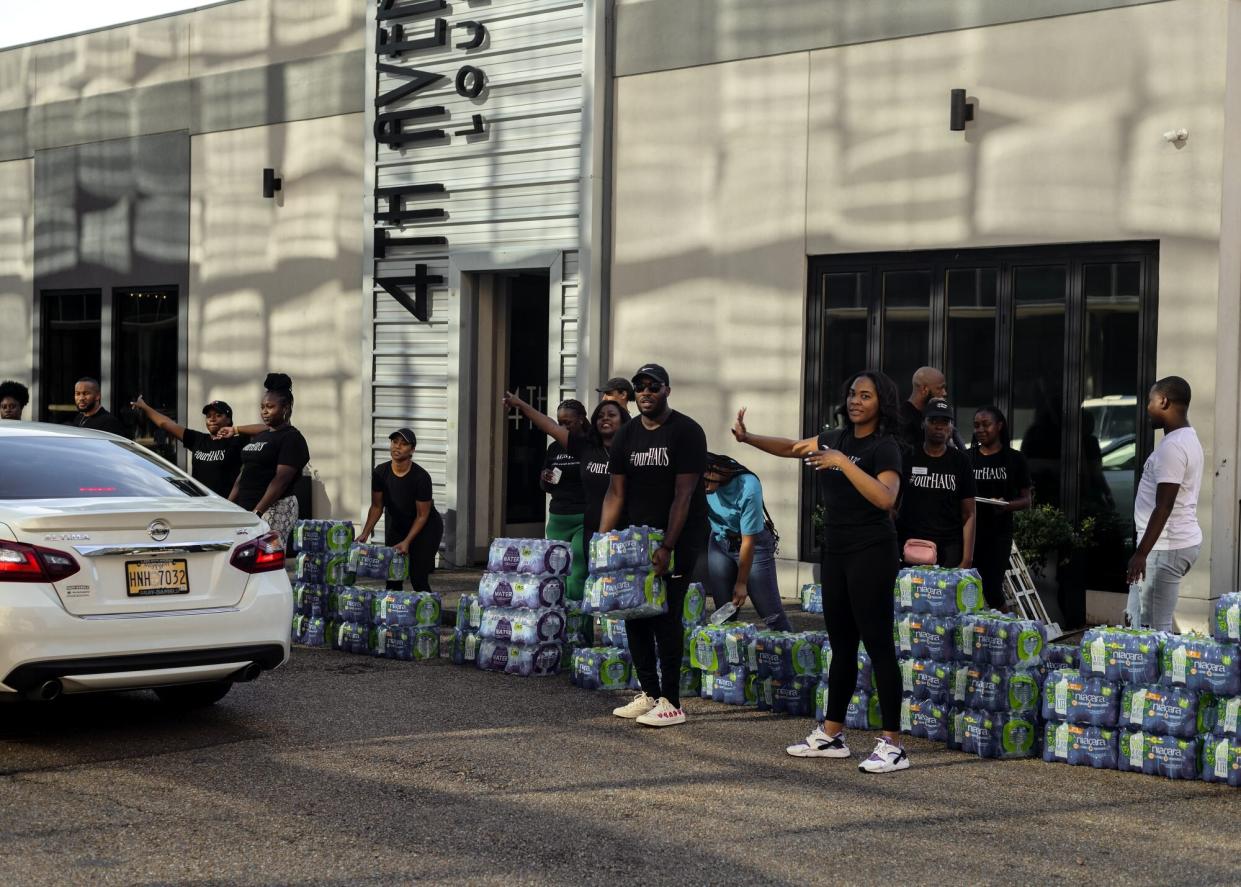Black Families Bear the Brunt of the Jackson Water Crisis and Environmental Racism

Houston Cofield/Bloomberg via Getty Images
In late August 2022, the Pearl River flooded due to severe storms. The flooding caused Jackson, Mississippi's largest water treatment facility, which was already operating on backup pumps because of prior failures, to stop treating drinking water indefinitely.
Two hundred thousand Jackson residents have been left without access to safe drinking water. According to the BBC, Mississippi National Guard troops have handed out 1.1 million water bottles, but it's been hard to keep up with needs.
"It's been challenging over the last almost five weeks as a working mom living with a chronic health condition," says Dr. LaFarra Young, MD, a physician, and Jackson-based business owner.
"I work as a physician, have a new beauty business, and I'm a mother—it's stressful juggling everything knowing we don't have clean water we can rely on," she says. "Clean water in America should be a basic human right, which has not been a priority for the residents of South Jackson for years. I live in Northeast Jackson, and unfortunately, it took my area of the city to be affected before we got national attention."
A History of Inequality Has Consequences for Black Families
This is not the first water crisis in Jackson and not the first example of environmental and infrastructure racism in the US. Jackson needed $1 billion alone last year to repair its pipes and treatment facilities, and the state has neglected Jackson's 80% Black population, according to the Brookings Institution.
Systematic inequality has meant cities such as Jackson, one of the poorest in the nation, have experienced years of neglected infrastructure, leading to the current water crisis. It mirrors the water crisis in Flint, Michigan, which was 57% Black when thousands of Flint residents were exposed to dangerous levels of lead, outbreaks of Legionnaires disease, and at least 12 people died.
Infrastructure in many predominately Black communities in the US has been failing for decades, and Black families are left to bear the brunt of environmental racism.
"Infrastructure failure does not happen overnight. This is neglect by professionals who are supposed to oversee our best interest and well-being," says Eric Dupre', an infrastructure and environmental expert with over 20 years of experience.
"Unfortunately, low-income areas are typically the most neglected. Our basic water and sewer infrastructure in the United States is in horrible condition, and new state policies to view the health and quality of this infrastructure need to happen," he says. "Look at ASCE report card grades on our infrastructure—we need a big change to make our infrastructure livable, especially in low-income areas like Jackson."
Black Families Frequently Face More Environmental Inequality
Along the Mississippi River in Louisiana, an area that used to be home to plantations is now an industrial highway of more than 150 oil refineries and factories—it's been called Cancer Alley.
This area accounts for 25% of the petrochemical production in the US and houses predominantly Black residents. For decades, residents in this area have suffered from some of the highest cancer rates in the nation due to pollution. Similar situations have happened across the US because a wealth and wage gap and lack of institutional financial support, loans, and insurance force Black families to live in these areas.
Research shows that people of color are significantly more likely to live in areas of high pollution. A long history of segregation in the US pushes marginalized groups into specific neighborhoods. These neighborhoods are more polluted and are also seven degrees hotter, according to a study released by MDPI.
Environmental Responsibility Should Mean More Help For Black Families
President Joe Biden signed the $1 trillion Infrastructure Investment and Jobs Act into law, with funds earmarked for disadvantaged and underserved communities such as Jackson. However, state legislators allocate the funding, and politics play a pivotal role in how those funds are used.
The President has also promised to address environmental inequalities with the Justice40 initiative pledges. The initiative promises disadvantaged communities 40% of the federal government's climate and clean energy investments.
Promises have been made to Black families for decades, especially around election cycles. The jury is still out on whether Black families will receive the infrastructure and environmental help they've been lacking and help avoid another crisis like in Jackson.

